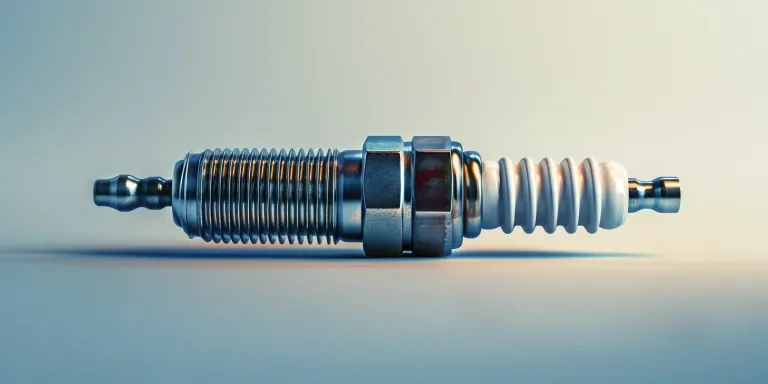Spark plugs are the unsung heroes of your vehicle’s engine, playing a pivotal role in its performance and efficiency. These small but mighty components are crucial for starting your car and keeping it running smoothly. In this comprehensive guide, we’ll explore everything you need to know about spark plugs, from their function and selection to replacement and cost.
Table of Contents:
– What is a spark plug?
– What does a spark plug do?
– How to choose a spark plug
– How long do spark plugs last?
– How to replace a spark plug
– How much are spark plugs?
What is a spark plug?

A spark plug is a critical component in the ignition system of gasoline-powered engines. It’s a small, but complex, device designed to deliver electric current from the ignition system to the combustion chamber of an engine. This electric spark ignites the compressed fuel/air mixture, initiating the power stroke that makes the engine run. Constructed from durable materials such as ceramic and metal, spark plugs must withstand extreme pressures and temperatures while maintaining their conductivity and structural integrity.
What does a spark plug do?
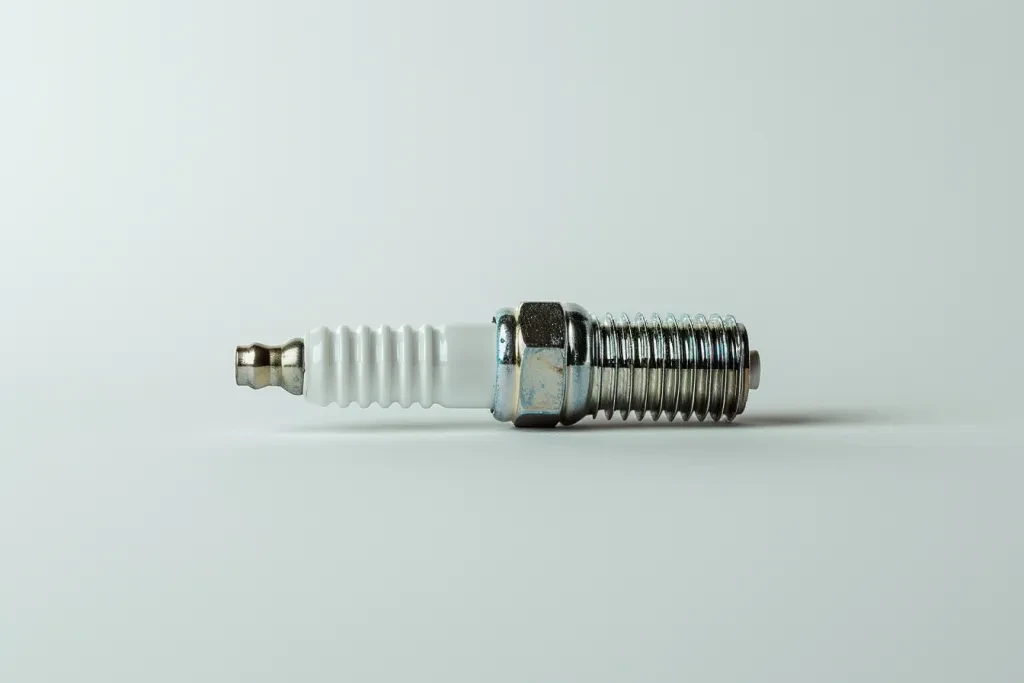
The primary function of a spark plug is to ignite the fuel-air mixture within the engine’s combustion chamber. This ignition is crucial for starting your vehicle and for the continuous power supply during operation. The efficiency of a spark plug directly affects engine performance, fuel efficiency, and emissions. A well-functioning spark plug ensures a clean and complete burn of the fuel, which translates to smoother running, lower emissions, and better fuel economy. Conversely, a worn or malfunctioning spark plug can lead to engine misfires, reduced power, increased fuel consumption, and higher emissions.
How to choose a spark plug
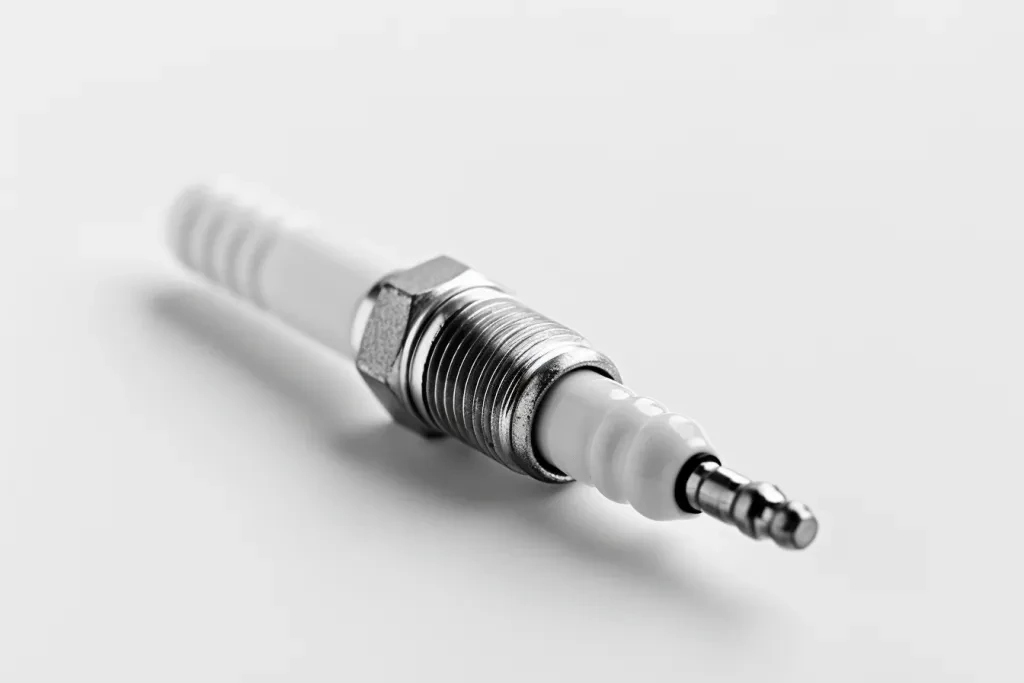
Choosing the right spark plug for your vehicle involves considering several factors, including the make, model, and engine type of your vehicle, as well as the driving conditions it will be subjected to. Spark plugs come in various types, including copper, platinum, and iridium, each offering different benefits in terms of longevity and performance. Copper plugs, while less durable, provide better conductivity. Platinum and iridium plugs, on the other hand, offer greater longevity and are better suited for modern, high-performance engines. It’s also important to consider the spark plug’s heat range, which should match your engine’s operating conditions to prevent overheating or fouling.
How long do spark plugs last?
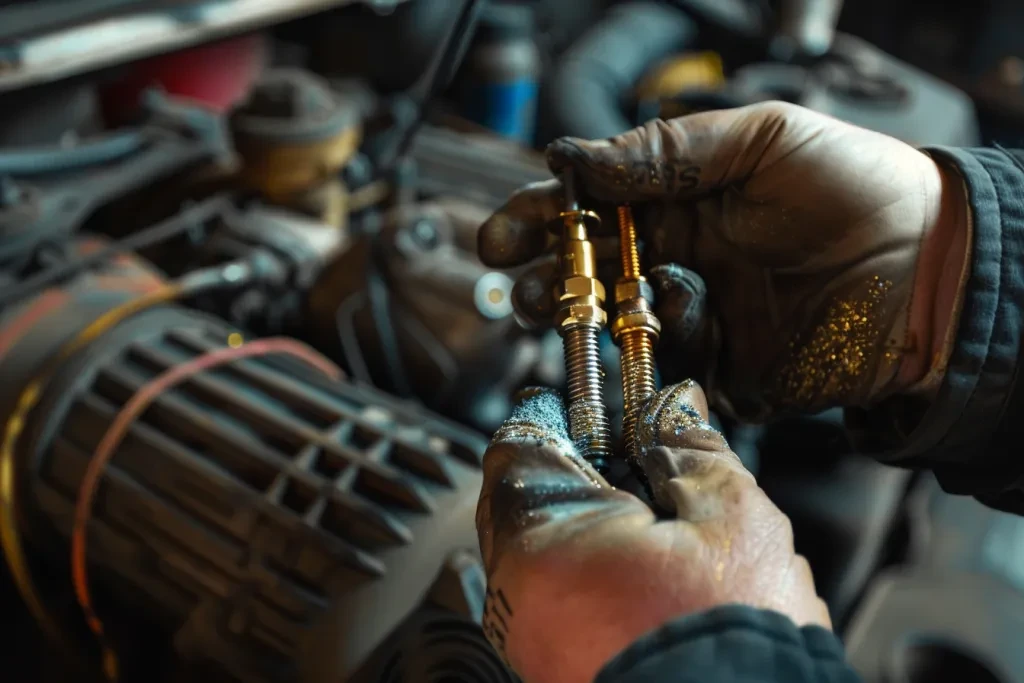
The lifespan of a spark plug varies depending on its material and your vehicle’s engine and driving conditions. Copper spark plugs typically need to be replaced every 20,000 to 30,000 miles, while platinum and iridium plugs can last up to 60,000 to 100,000 miles. However, this can vary based on the engine’s condition, the quality of fuel used, and the driver’s habits. Regular inspection and maintenance are crucial to ensure that spark plugs are functioning correctly and to identify when they need replacing to avoid engine performance issues.
How to replace a spark plug
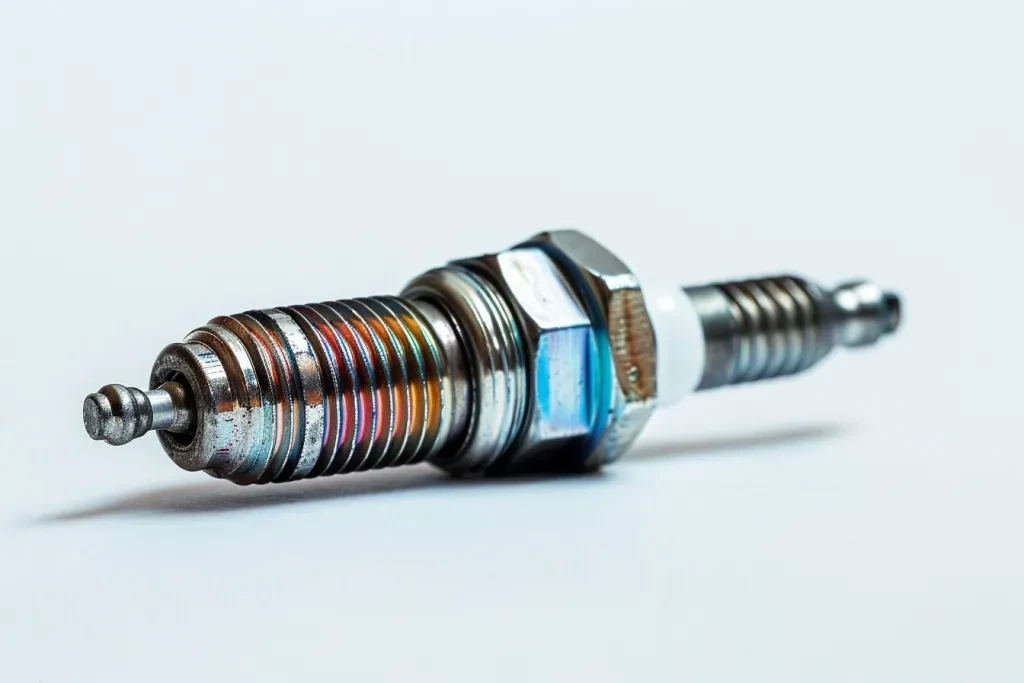
Replacing spark plugs is a straightforward task that can significantly improve your vehicle’s performance and fuel efficiency. The process involves removing the spark plug wire, unscrewing the old spark plug, checking the gap on the new spark plug, and screwing in the new plug before reattaching the wire. It’s important to follow the manufacturer’s specifications for torque settings to avoid damaging the engine. Although replacing spark plugs is a relatively simple DIY task, consulting a professional is recommended if you’re unfamiliar with engine components or the specific requirements of your vehicle.
How much are spark plugs?

The cost of spark plugs varies widely depending on the type and quality. Basic copper spark plugs are the most affordable, typically ranging from $2 to $5 each, while high-performance platinum or iridium plugs can cost between $8 and $15 per plug. While the initial investment in premium spark plugs is higher, their longer lifespan and potential benefits in fuel efficiency and engine performance can offset the higher cost over time. When considering the cost, it’s also important to factor in the potential savings from reduced fuel consumption and the convenience of less frequent replacements.
Conclusion:
Spark plugs are a vital component of your vehicle’s engine, ensuring efficient combustion and optimal performance. Understanding the role of spark plugs, how to choose the right type for your vehicle, and when and how to replace them can significantly contribute to your vehicle’s longevity and performance. With the right care and maintenance, you can ensure that your engine runs smoothly and efficiently, providing you with a reliable and enjoyable driving experience.
